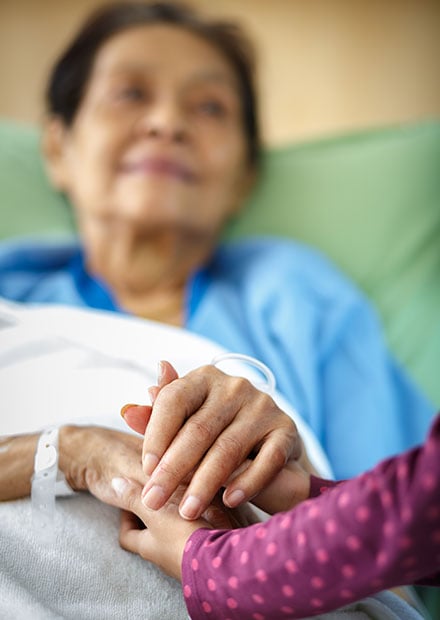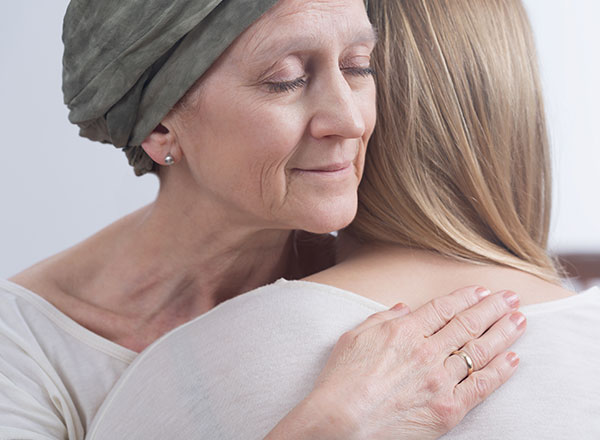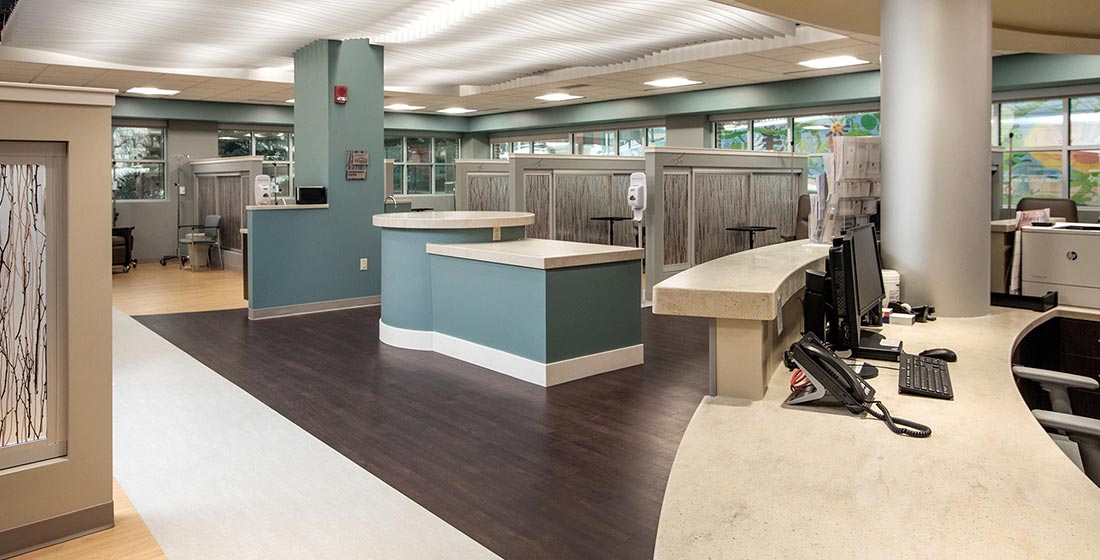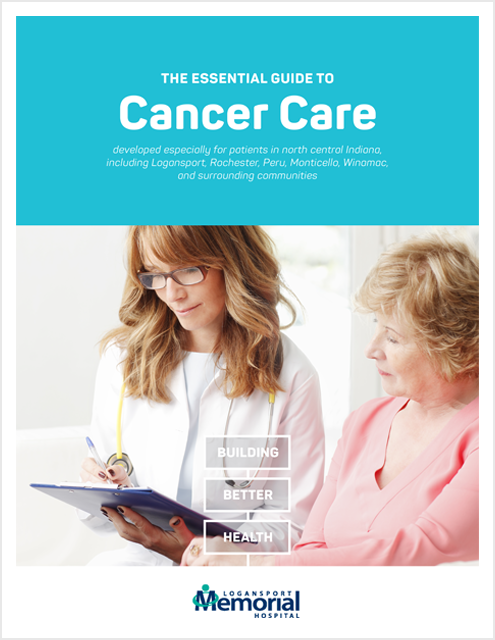The essential guide to Cancer Care
developed especially for cancer patients from north central Indiana, including Logansport, Rochester, Peru, Monticello, Winamac, and surrounding communities.
It’s not easy to talk about cancer
Everyone’s cancer experience is so different, from symptoms and where it is in your body to how much cancer is present and whether or not it’s spread.
With so many variables at play and more than 70 different types of cancer, taking the next steps after getting a cancer diagnosis is different for every patient, and getting expert information can feel like a daunting task.
The good news is that today’s doctors can treat most types of cancers—especially when cancer is found and treated early—using advanced treatment plans that incorporate everything from surgery to breakthrough technologies and innovative therapies.
What’s in this guide—
If you have recently been diagnosed with cancer, keep reading to learn more about common treatment options, find out what basic cancer terms and phrases mean, and get tips for how to navigate the doctor-patient relationship.
Keep reading to get expert advice on:
- What to do after a cancer diagnosis
- Evaluate cancer treatment options
- Get answers to cancer questions
- Learn common cancer terms
Be sure to read the additional resources linked within this page and print a copy of this guide as a general cancer care reference.










